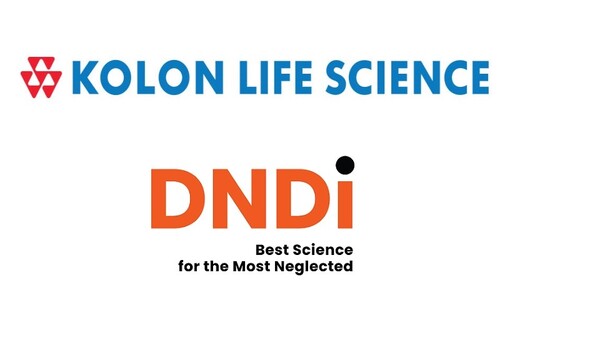Kolon Life Science said Tuesday that it has signed an agreement with the Drugs for Neglected Diseases initiative (DNDi), a non-profit drug R&D organization for neglected diseases headquartered in Geneva, to develop a low-cost, sustainable process for the treatment of onchocerciasis, one of the causes of neglected tropical diseases.

Neglected tropical diseases are a group of infectious diseases that primarily affect populations in tropical and subtropical regions of the world. These diseases thrive in areas with poor sanitation, limited access to clean water, and inadequate healthcare infrastructure, often affecting the most marginalized and economically disadvantaged communities.
Onchocerciasis is a dangerous disease transmitted by black flies around rivers, causing intense itching, vision impairment, or even complete blindness. It is the second leading cause of blindness globally, affecting 19 million patients, according to the company.
Reducing the cost of developing and producing new drugs is a key issue, given that most patients in tropical regions have low and middle incomes. Kolon Life Science will be responsible for developing Oxfendazole, an anthelmintic drug for animals, to a high-quality level suitable for humans.
Over the next two years, Kolon Life Science will develop the entire manufacturing process for high-purity oxfendazole and reduce production costs to a level that can be adopted by low- and middle-income countries. Following a phase 1 trial completed in Tanzania in 2022, DNDi plans to finish a phase 2a trial by 2026 and a phase 2b/3 trial by 2030. In addition to river blindness, DNDi also plans to evaluate oxfendazole for hookworm diseases and mansonellosis.
In the meantime, Kolon Life Science and DNDi were recently selected as infectious disease researchers by the Research Investment for Global Health Technology Foundation (RIGHT Foundation), a joint application from the Ministry of Health and Welfare, the Bill & Melinda Gates Foundation, and Korean life science companies.
"We entered into this agreement to fulfill our corporate social responsibility, which is one of the core missions of the Kolon Group, and to help expand our synthetic clinical drugs' contract development and manufacturing organization (CDMO) business globally," said Kim Sun-jin, CEO of Kolon Life Science. "We hope this agreement will come to fruition and benefit the underprivileged around the world who suffer from vision impairment and the risk of blindness."
"We are pleased to collaborate with Kolon Life Science on this project with the support of the RIGHT Foundation and look forward to their expertise and know-how in developing and optimizing the oxfendazole production process," said Laurent Fraisse, Director of Research and Development at DNDi. "With 240 million people around the world at risk of river blindness, mainly from marginalized communities, the development of affordable treatments is key to controlling this dangerous disease."

